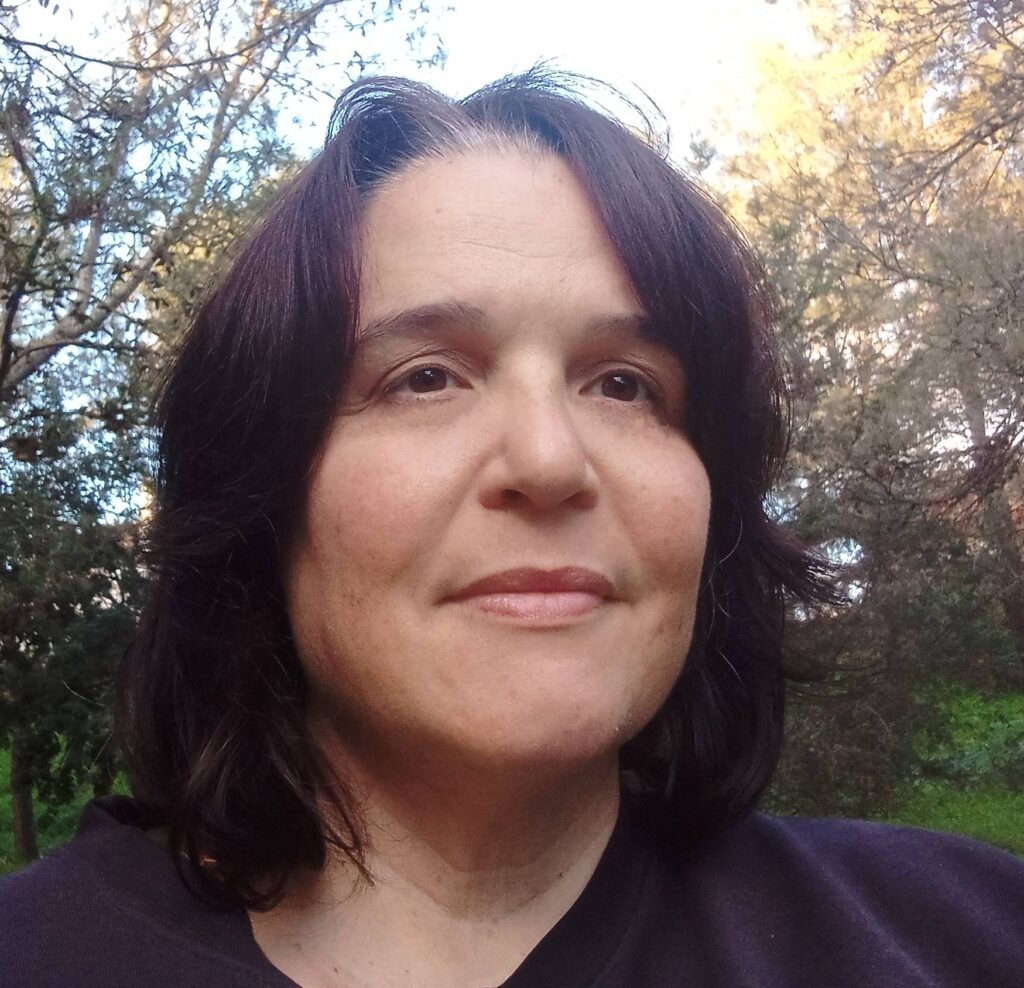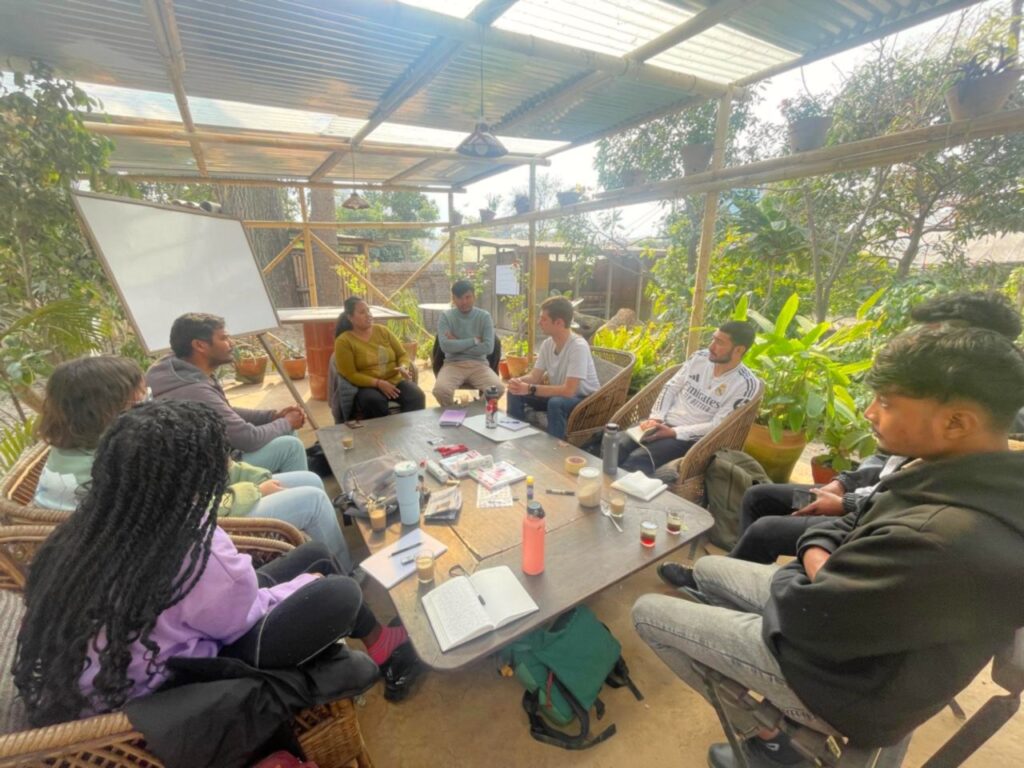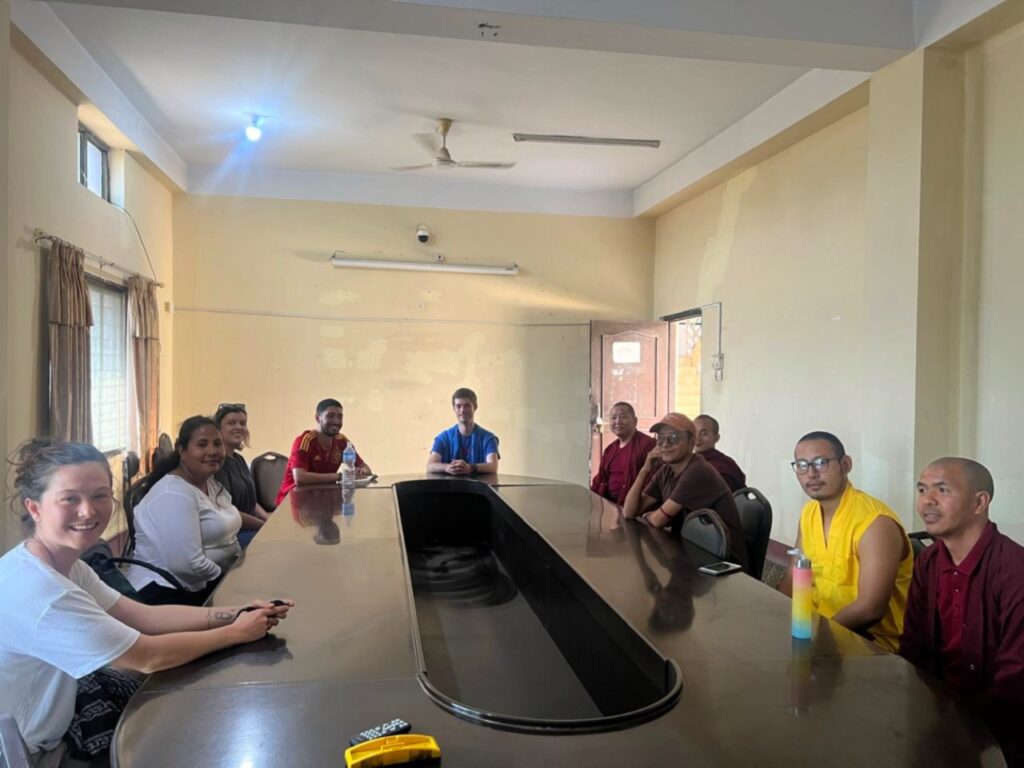Q&A: Dr. Carolina Castro Huercano on why the Global Master in International Education is an immersive journey
May 1st, 2025 | Faculty, SIT, SIT Graduate Institute
By Joanna Tanger

SIT's MA in International Education is for those who want to be leaders in the field and gain hands-on experience across different cultures and educational systems. Through SIT’s experiential learning approach and immersive study in Spain, Morocco, and Nepal, students develop critical skills in intercultural communication, leadership, program design and evaluation, policy analysis, and research.
Program Chair Dr. Carolina Castro Huercano brings more than 23 years of education experience across Spain, Asia, the United States, and Australia. She is dedicated to mentoring her students, specifically by facilitating learning experiences in international education and policy. We asked Dr. Castro Huercano why the MA in International Education is unique and what the career path is of a typical student who participates in this program.
How would you describe the MA in International Education program? What makes it unique?
The MA in International Education at SIT is more than just a degree—it’s an immersive journey for educators and change-makers who want to make a meaningful impact in the world of international and intercultural learning. The program blends academic depth with hands-on, real-world experience, so students don’t just learn about global education—they live it. As practitioners within the international education field ourselves, we bring a wealth of industry knowledge, active networks, and real-time insights into the classroom. This direct connection to the field enriches the learning experience and ensures that what students engage with is relevant, current, and deeply connected to practice.
What makes this program truly stand out is how global—and how real—it is. You’re not just sitting in a classroom reading about international education; you’re living it, across three continents. Whether you're navigating the vibrant streets of Seville, working alongside community partners in Nepal, or exploring post-colonial legacies in Morocco, every experience is designed to ground theory in lived reality. The program is deeply rooted in social justice, but it doesn’t stop at big ideas. You’re constantly invited to reflect, question, and apply what you're learning in real time. It’s messy, meaningful, and transformative in the best possible way.

Can you describe the student experience in Spain and Nepal, and the excursion to Morocco? Is there a specific focus in each country?
Each location in the program isn’t just a destination, it’s a learning environment with its own story, culture, and educational context.
In Spain, students are based in Seville, where they explore themes like migration, interculturality, and language politics in a European setting shaped by centuries of cultural exchange and complex histories. The learning here is vibrant, multi-layered, and very much alive in the streets, institutions, and communities you’ll engage with.
Then, in Nepal, the focus shifts. Students dive deep into education and development through a lens that highlights Indigenous knowledge systems, community-driven learning, and questions around access. There’s an incredible opportunity to collaborate with local educators and organizations doing powerful grassroots work, and the learning often happens off the beaten path, which makes it more meaningful.
The short-term excursion to Morocco adds yet another layer of perspective. Here, students explore education in a North African context, touching on topics like colonial legacies, multilingualism, religion, and identity. It's a condensed, immersive experience that encourages critical comparison and deeper global insight.
These countries weren’t chosen at random—they each represent a different facet of international education. Together, they create a rich, nuanced foundation for understanding how learning, identity, and justice intersect across borders.
What is the career path of a typical student who does this program?
There’s no one-size-fits-all answer—and that’s kind of the beauty of it. Students come into this program with different goals, and they leave equipped to shape a career that aligns with their values and passions. Many go on to work in international education—designing programs, managing global partnerships, or supporting students in study abroad and exchange initiatives. Others step into roles in nonprofits, NGOs, or government agencies focused on education and community development. Some graduates become curriculum designers or global citizenship educators. Others pursue doctoral studies or move into leadership positions in institutions that value intercultural competence and social justice.
What ties them all together is this: they’re changemakers. They leave the program not just with a degree, but with clarity, confidence, and connections that carry them into impactful, globally minded careers.

What advice do you have for prospective students who are interested in this program?
Come with curiosity, flexibility, and a willingness to be transformed—because this program will stretch you in all the right ways. You’ll be moving across cultures, wrestling with big questions, and sometimes sitting with discomfort as you unpack complex global issues. That’s where the real growth happens.
Don’t worry about having all the answers. This isn’t about being perfect, it’s about being open. The more you engage with your peers, communities, and your own reflections, the richer your experience will be. Also, don’t underestimate the power of connection. Your cohort becomes your network, your sounding board, and your support system—during the program and long after.
If you’re ready to explore, challenge yourself, and dive into the complexities of global education, this program will give you the space and tools to grow into the educator and leader you want to be.
To learn more about SIT's MA in International Education, please visit https://graduate.sit.edu/program/global-master-of-arts-international-education/.
